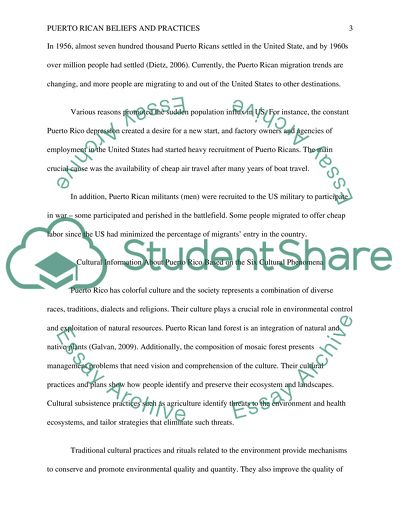Cite this document
(“Puerto Rican Beliefs and Practices Essay Example | Topics and Well Written Essays - 1250 words”, n.d.)
Puerto Rican Beliefs and Practices Essay Example | Topics and Well Written Essays - 1250 words. Retrieved from https://studentshare.org/nursing/1462704-puerto-rican-beliefs-and-practices
Puerto Rican Beliefs and Practices Essay Example | Topics and Well Written Essays - 1250 words. Retrieved from https://studentshare.org/nursing/1462704-puerto-rican-beliefs-and-practices
(Puerto Rican Beliefs and Practices Essay Example | Topics and Well Written Essays - 1250 Words)
Puerto Rican Beliefs and Practices Essay Example | Topics and Well Written Essays - 1250 Words. https://studentshare.org/nursing/1462704-puerto-rican-beliefs-and-practices.
Puerto Rican Beliefs and Practices Essay Example | Topics and Well Written Essays - 1250 Words. https://studentshare.org/nursing/1462704-puerto-rican-beliefs-and-practices.
“Puerto Rican Beliefs and Practices Essay Example | Topics and Well Written Essays - 1250 Words”, n.d. https://studentshare.org/nursing/1462704-puerto-rican-beliefs-and-practices.


